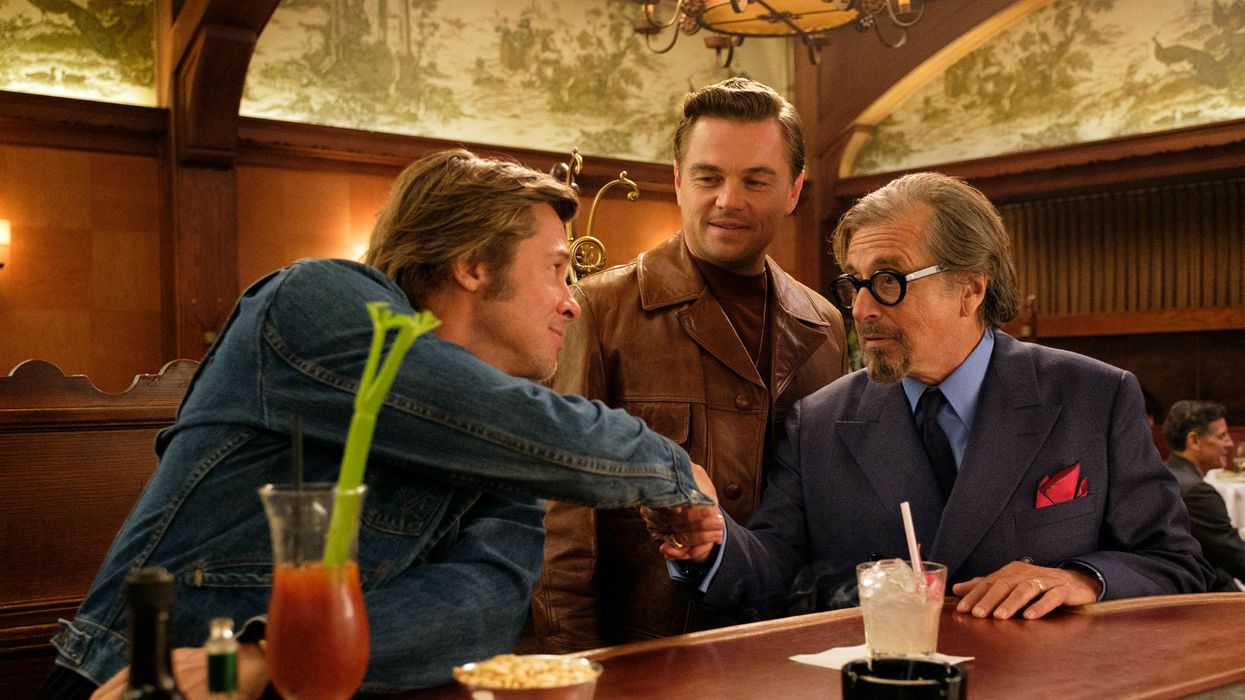You Won't Believe the Deal Tarantino Got for 'Once Upon a Time In Hollywood'
Not even Christopher Nolan could pull off what the Pulp Fiction auteur did. Here's why that's a big deal and what it means for you.

Quentin Tarantino has joined the exclusive ranks of those rare directors that are able to own the copyright on their films.
The Hollywood Reporter investigated the process behind how Tarantino and his team negotiated for the Oscar-winner to own the rights to Once Upon a Time In Hollywood, something very few filmmakers are able to do in the studio system -- especially with a price tag as high as Hollywood's ($90 million budget after California tax incentives) and with the lucrative potential of downstream revenue. Here's a breakdown of how the deal came together and what this could mean for you and your films in the future.
In November 2017, the auction for Tarantino's ninth film came down to two suitors: Warner Bros. and Sony. Both were ready to cover the large budget for the period piece, set in 1969, and both agreed to give the multiple Oscar-winner final cut.
But only Sony, eager to get back into business with their Django Unchained filmmaker, agreed to give him copyright control of his film. (Warner Bros. balked because doing so would have set an untenable precedent for them. According to a THR source: "Because then they would have to give Christopher Nolan that same deal.")
Tarantino's deal works like this: Tarantino has full ownership of Hollywood's underlying copyright after a period of anywhere between 10 and 30 years, in a complex schedule that shifts ownership from studio to filmmaker over that period. According to THR, "insiders say Tarantino asked for the copyright since he had already secured similar terms for his movies made under Harvey Weinstein, first at Miramax and later at The Weinstein Co." Clearly, it is very important to QT to own his creative materials; he's able to also control how (and if) it is exploited, which is critical at a time where IP is up for grabs for reboots and spinoffs in a streaming world. The bucks stops with Tarantino if he wants to expand on the diverse and engaging world of characters he created for his new film. (But Sony has first dibs to come onboard for a prequel or sequel.)
Not even James Cameron owns the copyright on his films, gang. As THR points out, the fact that QT owns it on a major studio film -- one he did not have to invest his own money into -- make him even more of a "unicorn" among his peers. And only a select few of directors own the copyright to their works, often after ponying up their own money to make them (as in Mel Gibson's case on Passion of the Christ or Peter Jackson's, who owns the underlying rights on District 9 because he funded the development of the project.) Other directors that own their material include George Lucas and Richard Linklater (Boyhood).
Now, obviously, one can't simply walk into "Insert Hollywood Studio Here" and demand their deal for their movie include owning the copyright of it. Not without the cred and bonafides of someone at Tarantino's level. But the takeaway here is that it is not impossible for filmmakers, indie or studio-level, owning their movies. To do so is a unique and important honor, one that Tarantino takes quite seriously.
Source: The Hollywood Reporter











